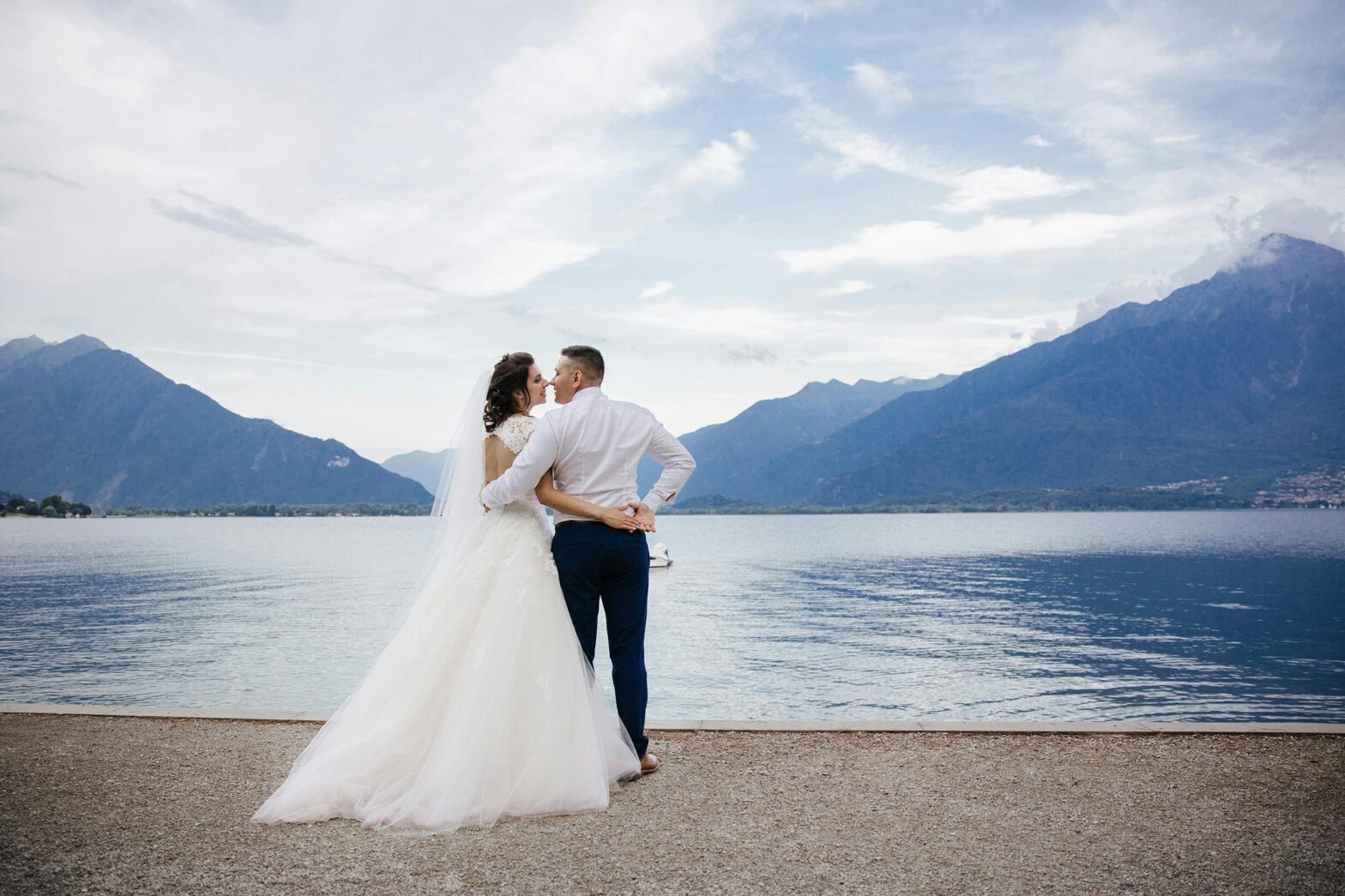Thoughts of marrying in a beautiful place? Then get married abroad for a truly unforgettable experience. Be it a seaside celebration in Greece, a love-filled event in Italy or an intimate gathering at Copenhagen City Hall in Denmark, the world is full of opportunities for your perfect wedding! In this article we will cover all aspects of getting married overseas – legalities and paperwork as well as some tips on planning destination weddings.
Legal Requirements for Getting Married Abroad
Before diving into the excitement of planning your destination wedding, it’s crucial to understand the legal requirements involved. Each country has its own set of rules and regulations for marrying non-citizens. For example, in Denmark, Gibraltar, and certain parts of the United States like Las Vegas, the process is relatively straightforward, making them popular choices for couples seeking a hassle-free wedding abroad. To get married in Denmark, couples simply need to provide essential documents such as passports, birth certificates, and a Certificate of Marital Status. The ceremony can take place at Copenhagen City Hall or any other approved location, and the marriage will be recognized worldwide. In Gibraltar, known for its picturesque landscapes and favorable marriage laws, couples can tie the knot with minimal paperwork. A visit to the Gibraltar Registry Office, along with valid identification and proof of marital status, is all that’s required to make your union official.
Similarly, in the United States, destinations like Las Vegas offer quick and easy marriage procedures, making it a popular choice for elopements and spontaneous weddings. With a valid ID and a nominal fee (no gree card for the marriage is required or immigrant visa), couples can obtain a marriage license and exchange vows in a matter of minutes.
For couples considering other countries in Europe, such as Greece, Italy, or the UK, the process may involve additional steps, including obtaining a visa or residency permit, translating documents, and fulfilling specific legal requirements, sometimes really challenging. Citizens must ensure their marriage is legally recognized in their home state before making the application for a destination wedding.
Legal Impact for US Citizens
- Marriage Abroad: When U.S. citizens marry abroad, their marriage is generally considered legally valid in the U.S. as long as it is recognized in the country where the marriage occurred. To verify this, the marriage must meet the local legal requirements.
- Returning Home: After returning to the U.S., you typically don’t need to register the marriage, but it’s advisable to keep all the original or certified copies of the marriage documents. An international marriage certificate is usually accepted by various U.S. agencies, including the Department of State for changing your marital status on official documents.
Legal Impact for Danish Citizens
- Marriage Abroad: In Denmark, marriages conducted abroad are generally recognized as long as they adhere to local legal requirements. For instance, a marriage performed in Greece will be considered valid in Denmark if it meets Greek legal standards.
- Returning to Denmark: Danish citizens returning to Denmark should present the marriage certificate to their local municipality (kommune) to have their marriage recognized and update their civil status.
Legal Impact for Dubai Residents
- Marriage Abroad: For Dubai (or broader UAE) residents, the recognition of a foreign marriage depends on the couple’s nationality and religion. If a marriage was conducted in compliance with the local laws of the country where it occurred, it can be recognized in Dubai. However, Islamic and non-Islamic couples may face different legal interpretations.
- Returning to Dubai: Residents of Dubai should register their marriage with the relevant consulate or embassy. They may also be required to have the marriage certificate translated into Arabic and legally certified.
Legal Impact for Vietnamese Citizens
- Marriage Abroad: In Vietnam, marriages conducted abroad are recognized if they comply with the legal regulations of the respective country where the marriage took place. Vietnamese nationals marrying non-citizens must ensure all paperwork is in order according to both Vietnam and the host country’s marriage laws.
- Returning to Vietnam: To have the marriage recognized in Vietnam, the couple should have their foreign marriage certificate authenticated or legalized and register it at the Department of Justice.
Destination Wedding Planning Tips
Once you’ve chosen your dream destination for the big day, it’s time to start planning. To help navigate international marriage laws, consult your local consulate for guidance on the necessary paperwork and civil requirements. Here are some essential tips to ensure a smooth and memorable wedding abroad:
- Research Marriage Requirements: Begin by researching the legal requirements for getting married in your chosen destination. Contact the embassy, high commission, or consulate of the country where you plan to marry to understand the necessary documents and procedures.
- Plan in Advance: Give yourself plenty of time to plan your destination wedding. Start the process at least 6-12 months before your desired wedding date to allow for ample time to gather documents, make travel arrangements, and coordinate with vendors. Researching the civil laws of your chosen wedding destination is essential to ensure your union is recognized and service providers can assist with the necessary applications.
- Be Culturally Conscious: Learn about the customs and traditions of the country where you plan to wed so that you will not offend anyone unknowingly. Honour local practices and consult with local wedding organisers or providers when dealing with cultural differences.
- Spend Money Judiciously: Set your wedding budget early on in the planning process, and take into consideration travel costs, venue hire fees, supplier charges and other expenses related to the event. Also account for currency conversion rates and possible fluctuations to avoid getting caught off-guard financially. Make sure your spouse has all the required documents before the ceremony, as some countries have strict legal requirements for foreigners.
- Pick the Right Venue: Choose a location for your marriage ceremony that is within your price range as well as one which matches what you have in mind. This could be an attractive beachfront resort overlooking the ocean, a picturesque castle or even a cosy little chapel downtown – just ensure it meets both logistical requirements and aesthetic desires.
- Use Local Suppliers: Engage services of nearby professionals such as photographers, caterers or florists who understand the area better than anyone else does; they can therefore give useful recommendations based on their experience working there before. These individuals might also be helpful when it comes to overcoming language barriers or dealing with other challenges associated with distance.
- Communicate with Guests: Keep your guests informed about travel arrangements, accommodation options, and wedding details well in advance. Provide clear instructions, travel tips, and local recommendations to ensure a seamless experience for everyone involved.
Duration and useful tips
Considering for logistical and budgetary reasons when planning a destination wedding, is very important to think about the length of time that you’ll be spending abroad for your celebration. It affects not only you but also your guests’ experience; hence there should be a balance between having fun and being practical. Many couples feel like extending their celebrations beyond one day particularly if they have chosen a long-haul destination as it can make the whole trip more worthwhile both for them and those who will come along with. This means that there will be enough time to rest, explore new places and bond with friends or relatives within an exciting environment. On the other hand, making the wedding last longer outside your home country may lead to extra expenses and requirements. Every additional day spent on such occasions increases costs related to transport, accommodation, food among others not only for bridegroom but also all his/her visitors.
Therefore there is need to allocate sufficient funds through proper planning so that none of these things are left out due lack money. Furthermore, availability/ accessibility of various venues where receptions can take place after saying “I do” in another nation may depend on how long such events are expected last. Sometimes during peak tourist seasons it becomes hard securing space at favourite locations because many people want same thing at once thus booking should be done early enough while keeping some days open elsewhere. Similarly, flights become scarce or costly towards particular periods hence selecting dates carefully plus thinking through travel logistics becomes imperative even if this means compromising somewhere else. Ultimately what matters most is what works best according personal taste; therefore if someone wants quick escape over weekend then fine but should communicate clearly beforehand and plan well so everything turns out great otherwise go ahead extend stay up until next weekend just be open minded throughout.
Conclusion
Getting married abroad is legal and simply offers couples the opportunity to exchange vows in stunning locales while creating unforgettable memories with loved ones. From the sandy beaches of Greece to the romantic streets of Italy (Tuscany or Sicily for example) and the charming halls of Copenhagen City Hall, the world is full of enchanting destinations for your dream wedding. By understanding the legal requirements, planning diligently, and embracing the cultural richness of your chosen destination, you can embark on a journey of love and celebration that transcends borders. So, the will to say “I do” to the adventure of a lifetime need to be planned properly in a foreign country.


